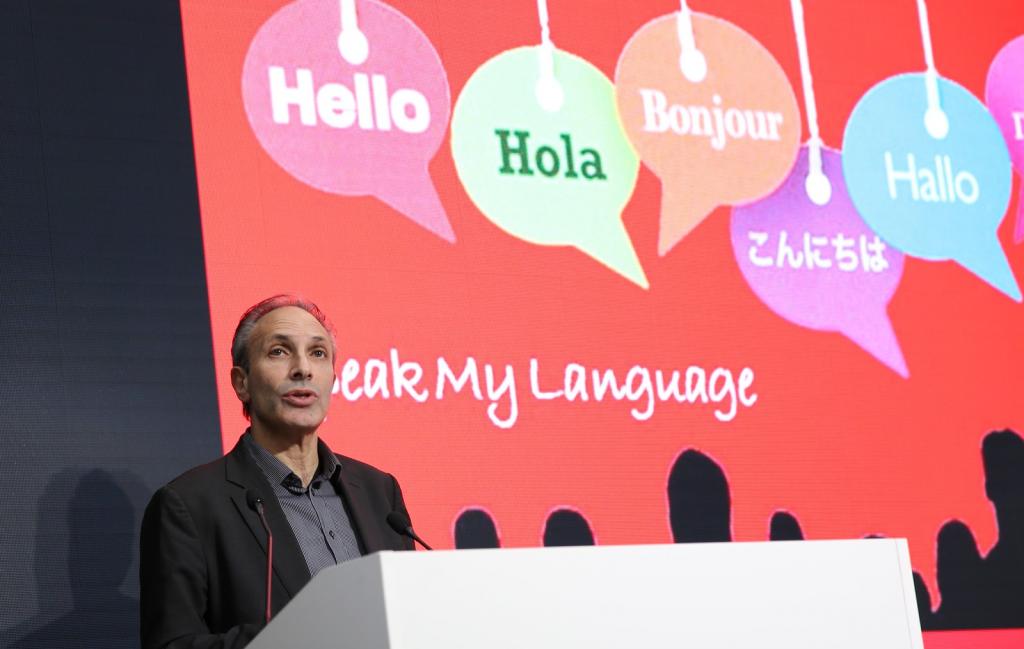Malnutrition is a global challenge, affecting nearly all the countries in the world, and despite progress is slow globally, scaling up and raising ambitions is possible and central to attain sustainable development. The strong messages of the 2014 Global Nutrition Report, already voiced at the Second International Conference on Nutrition (ICN2) in November 2014, were once more emphasised at the event “Key findings of the Global Nutrition Report” organised on 28 January 2015 by the Global Health Programme, the World Health Organisation (WHO), the Food and Agriculture Organization of the United Nations (FAO), and the UN System Standing Committee on Nutrition (UNSCN). Issues of nutrition are nevertheless still not sufficiently recognized in the global debate. With only one out of 169 SDG targets mentioning nutrition, the latter clearly constitutes one of the areas that have not been given enough consideration in the post-2015 debate. If United Nations Secretary General Ban Ki Moon placed 2015 as the year of development, Lawrence Haddad, co-chair of the Global Nutrition Report, echoed him by calling for 2015 to be “the year of getting nutrition into development”. Failure to do so could have negative consequences in nutrition investments, as the post-2015 goals will set the framework to direct development financial flows. And this despite the compelling economic arguments for investing in nutrition presented in the report. In this regard, Sirpa Sarlio-Lähteenkorva, Ministerial Adviser to the Finnish Ministry of Social Affairs and Health, reminded that “money talks”: in spite of the importance of human rights and health arguments, the economic evidence linking investments with nutrition outcomes will play a key role in building the political will to scale-up nutrition.
The event underlined the complexity of the issue and highlighted strengths and weaknesses of the report. The focus on accountability was clearly seen as a key value of the document. The main conclusion in this regard was, however, that accountability remains weak in the nutrition system. Not only better data are needed, but also better commitments. Dr Francesco Branca, Director of the WHO Department of Nutrition for Health and Development and Executive Secretary of UNSCN, pointed out that the ICN2 was a first step in the right direction, with a Framework for Action defining commitments and outlining different policy and programme options in different sectors; but he also made clear that much more needs to be done to achieve the vision of a world free from malnutrition.
The report was seen in particular to have avoided tough issues related to the global food industry. Mar Van Ameringen, Executive Director of the Global Alliance for Improved Nutrition (GAIN), highlighted the important role played by the private sector in shaping nutrition outcomes, making it difficult to avoid questions related to the role and responsibilities of businesses along the food value chain in addressing global nutrition challenges. Transparency and accountability mechanisms are central to manage the tension between conflicts of interest and opportunities – in terms of business commitments, innovations, skills, and resources to scale up nutrition. In this context, the point was made that not only commitments to do something, but also commitments to avoid certain actions – such as harmful marketing – should be considered and tracked to strengthen nutrition accountability. This discussion on the role of the private sector is also part of a wider governance debate around nutrition. On one hand, the multiplication of actors and initiatives requires more analysis on governance within the nutrition sector itself, to better understand how nutrition governance influences nutrition outcomes. On the other hand, nutrition needs to overcome isolation and reach out to a number of related sectors. Josephine Ippe, Global Nutrition Cluster Coordinator at the UNICEF Office of Emergency Programme, made the case for stronger links between nutrition and humanitarian affairs, emphasising that nutrition is too often overlooked in crisis preparedness and response. Panellists and contributions from the floor also called for stronger links of the nutrition debate with climate change and sustainable development issues, as well as with the challenge of sustainable production and consumption patterns. The notion of sustainable diets was put forward to reconcile good nutrition, health, and sustainability, by taking into account the health and environmental consequences of what we eat.
The discussions triggered by the 2014 Global Nutrition Report clearly show that the report can and should be more than a document: with the words of Patrizia Fracassi from the SUN Movement Initiative Secretariat, it can be an “engine for change”, contributing to stimulating nutrition-relevant actions from a wide range of stakeholders. A strong case for scaling up nutrition was made, what is needed now is building the political will to do so. International Geneva actors need to be at the forefront of this process, by bringing together stakeholders at the interface of nutrition, health, sustainable development, human rights, and humanitarian affairs to raise the profile of nutrition and strengthen multistakeholder action to prevent all forms of malnutrition.


